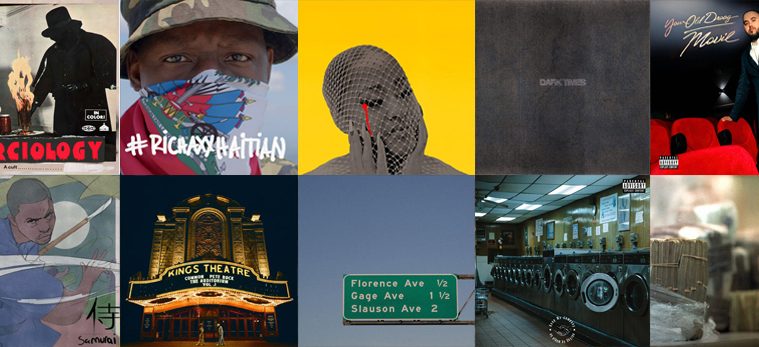Happy Holidays/Happy New Year. It’s been an awfully long 2024 and an even longer December than the Counting Crows once experienced. With social and economic upheavals in America just around the corner comes a certain uncertainty and apprehension. However, one thing I’ve realized being over the age of 40 is that some great music is birthed during those times. And what genre of music is more American than hip-hop? This art form, and all its subsequent evolved forms, was born in the streets of America.
As for over a decade, December has been my favorite time of the year to write about hip-hop. Specifically, because I get to give my verdict on what I believe are the top ten hip-hop albums of the year. Plus, the feedback goes both ways as readers often comment on albums that I may have missed or didn’t give much a chance. But in any case, I present you with my top 10 of 2024.
10.)
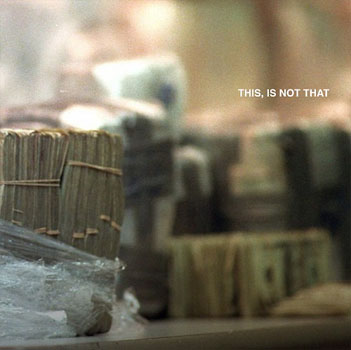
Artists: Apollo Brown x CRIMEAPPLE
Album Title: This, Is Not That
Label: Mello Music Group
Release Date: December 6th, 2024
Producer: Apollo Brown
It’s gotten to the point where whenever Detroit beatsmith Apollo Brown releases a joint album, the only question is “who’s gonna be rapping over his beats this time?” From Skyzoo, Ras Kass, O.C., to many others, Mr. Brown certainly has a reputation for crafting samples into beats that match the caliber of the emcee of his choice. New Jersey’s CRIMEAPPLE is no exception. Already a vivid lyricist, the Hackensack-raised emcee now spins his bilingual narrative yarns over Apollo’s dusty samples laced with boom-bap. With a cover showing bands of money, the duo wastes no time in letting listeners know that their union won’t be what folks think it is. Of the earlier tracks on the album, it was “Superstitious” that truly drew me in. Apollo’s moody, cowbell-driven production is combined with a minimal, but thumping boom-bap as CRIMEAPPLE alternates between braggadocious and lavish rhymes.
The first single, “Know No Better”, is built from a sample of Gary Wright’s “Dream Weaver” and is one of Apollo’s best productions. He took the song’s airy atmosphere and converted it into a spookily lush head-nodder for CRIMEAPPLE to lay down raps about the fruits of his lifestyle: Women, cars, money, and good food. The guest rappers are kept to a minimum on this 13-track endeavor, specifically with Willie the Kid and English rapper Sonnyjim. The former appears on “Wonderful Feelin’” over a soap-operatic looped production and Sonnyjim makes his presence felt on “Almanacs”. The drumless piano-driven “Coke With Ice” contains autobiographical rhymes and loose crime talk. “My Own Good” is defined by the haunting choir-like vocals in the background as CRIMEAPPLE raps about going back to old haunts despite feeling that you can’t go home again.
Rounding out the album are “Favoritism”, a jazzy number and a lyrical ode to CRIMEAPPLE’s favorite ladies. “Mis Amigos” makes use of heavy strings for a somber account of his come-up. Finally, is “New Dreams” with its guitar and flute samples allowing CRIMEAPPLE to rap about having both rap dreams and hoop dreams. As an emcee, CIRMEAPPLE is more enthusiastic when it comes to laying down verses as opposed to hooks. On “This, Is Not That”, he puts more effort in forming songs, not just rapping stream-of-consciousness urban raps with well-placed wordplay. For Apollo Brown, he did what he was supposed to: Create emotive beats to bring out evocative rhymes. Though this album may just be a one-time-only collaboration, as are many of Apollo’s joint albums, it satiated my curiosity on how CRIMEAPPLE’s rhymes sound on Apollo Brown’s trademark style.
9.)
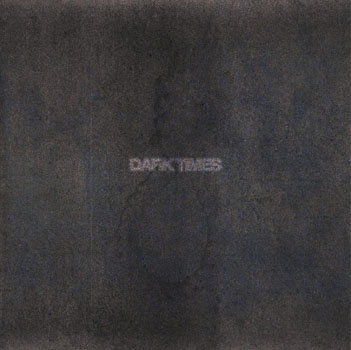
Artist: Vince Staples
Album Title: Dark Times
Label: Blacksmith/Def Jam Recordings
Release Date: May 24th, 2024
Producers: Benny Bock, Rahm, Cardo, Jay Versace, Michael Uzowuru, et. al.
“Summertime ‘06” was my first exposure to Vince Staples. His 2015 double-album debut was lengthy, weighty, but a clear look into the mind, life, & times of the rapper. He was in his early 20s at the time, but the Long Beach emcee showed raw ability for his cinematic, coming-of-age first outing. Since then, he’s released several albums with both himself and his city as the main characters. His sixth album, “Dark Times”, reads as something of a bleak undertaking, though Mr. Staples isn’t shy about shining light on his psyche’s more darker recesses. The album’s intro, “Close Your Eyes and Swing”, is less than 30 seconds in length, makes use of outdoor/nature samples, and has only one spoken line: “To live is to be, like the nigga in the tree.” That’s an awfully philosophically cynical play on words. Though only thirteen tracks at about thirty-five minutes total, “Dark Times” is a musically interesting character study on the rapper named Vince Staples (FYI, real name, no gimmick).
The first full-length track is “Black&Blue”, with thumping drum snares, echoing vocals, and Vince using his laid back flow to convey themes of depression. The introspection is even greater on “Shame On The Devil”, the album’s first single. Comprised of a lush beat with ethereal vocals, the track is loosely a rapped conversation with God. One track that was surprising was “Étouffée”, with the lyrics and production paying tribute to Cash Money Records during the label’s turn-of-the-century breakthrough. “Justin” is brief, but concise storytelling as Vince conveys a one-verse narrative with relatable details, especially and particularly the theme of having the rug pulled out from under you. With “‘Radio’“, Vince creates another homage. But this time, it’s dedicated to his memories of when good music was played on the radio. With the remaining third of the album, there does appear to be a degree of nihilism, though.
“’Cause every moment that we share feel like a Polaroid / Sometimes you gotta shake it up to see what’s really there” is a line from “Nothing Matters” that expresses this sentiment. However, the production on the Leken Taylor-laced “Little Homies” has an upbeat sound to go along with Vince’s encouragement to the youth who’ve come after him. He’s stated that “Dark Times” is his last contractually-obligated album for Def Jam, which is acceptable as it bookends a chapter in his musical career (but who knows? Some labels have revolving doors). The “less is more” approach on this album is effective as it’s essentially compacted into a short story without any lost details. Overall, “Dark Times” is a more than solid listen. Its artistic growth with a degree of therapeutic qualities show that hip-hop is beyond the general perception of the genre’s aggressive fronts and rampant bravado.
8.)

Artist: Mach-Hommy
Album Title: #Richaxxhaitian
Label: n/a
Release Date: May 17th, 2024
Producers: Sadhu Gold, Conductor Williams, Quelle Chris, Kaytranda, Fortes, et. al.
New Jersey-based emcee Mach-Hommy is as mysterious as the late MF DOOM: He has a shrouded face, very little revealed about his personal life, an independent musical output that is both as long and elusive as he is, and an eclectic set of influences. His Haitian background also plays a part in his work as well, weaving his native cultural sounds into his wordplay and pop culture references. His latest album, stylized in all-caps as “#RICHAXXHAITIAN”, doesn’t waver from that format. Physically, this album quickly became a high-priced collector’s item given its limited release and the enigma surrounding much of Mach’s public persona. As storied as his catalogue is, “#RICHAXXHAITIAN” is Mach’s strongest release since “Pray For Haiti”, showing his capacity for adaptation to varied east coast rap styles and productions.
Many of the song titles are capitalized and titled in Haitian French, showing both Mach’s pride in his background and his mastery at bilingual rapping. Musically, the production (mostly done by Sadhu Gold) has grainy sample flips and Haitian homages, starting with the opening track. Differences in styles notwithstanding, Mach stands toe-to-toe with many of his guest stars. The lo-fi erratic “S.W.A.T.”-esque production on “ANTONOMASIA” puts him aside Roc Marciano, who spits his customary mafioso raps like he’s going for broke. “PADON” features Tha God Fahim over Sadhu’s whirring and distorted piano samples and dusty snares. Brooklyn emcee Your Old Droog makes an appearance on “Empty Spaces”, after Mach opens his own verse boldly declaring “Fuck nigga, thought he was a Billy Goat / Mach-Hommy is the apex, I’m on a hilly slope”. His collaboration with The Roots’ Black Thought on the Quelle Chris-produced “Copy Cold” is the album’s best one, with Black Thought’s verse showing his masterful pen game.
Lyrically, Mach rides his choice of beats effortlessly and with confidence. He doesn’t just rap, he even sings the hook on the accordion-sampling “The Serpent and the Rainbow”. His mastery over bars and punches is shown on “Guggenheim Jeune”, with some lackadaisical crooning reminiscent of Yasiin Bey. Less than 50 minutes and totaling 17 tracks, the Jersey-bound Port-au-Prince emcee delivered a complete album whose buzz spread largely through his devoted fan base. It also helps being a Haitian-American hip-hop artist from Jersey as it parallels him with The Fugees. Mach’s status as a walking question mark has also worked to his benefit, as rappers from different lanes are sufficiently intrigued to work with him throughout his career. That mystique not only compelled me to give him a listen, but it’s also part and parcel what’s made “#RICHAXXHAITIAN” one of the better 2024 hip-hop releases.
7.)
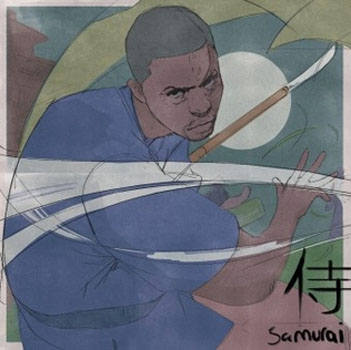
Artist: Lupe Fiasco
Album Title: Samurai
Label: 1st & 15th/Thirty Tigers
Release Date: June 28th, 2024
Producers: Soundtrakk, Kush Baby, Trumaine Jordan, et. al.
It’s been nearly a decade since I’ve purchased a Lupe Fiasco album. Since after 2007’s “The Cool”, Lupe’s artistic output has either been really loved, or really hated. While 2015’s “Tetsuo & Youth” was good, it wasn’t great like the aforementioned 2007 album or his acclaimed “Food & Liquor” series. While I didn’t think he fell off as an emcee, I just didn’t want to take any more chances on albums of his that were bound to fail, like “Lasers”. I almost gave his ninth album, “Samurai”, the same treatment until I read about the album’s background: Entirely produced by long-time collaborator Soundtrakk (with help from several co-producers), closing at the half-hour mark, and comprised of eight songs, Lupe did what Skyzoo did on his 2023 album: He created a concept album from someone else’s perspective, but Lupe didn’t use a fictional character, he kept it real (literally): He took the late Amy Winehouse and, in the parlance of the multiverse, created a variant out of her. A variant from a universe built from an interesting premise: “What if Amy Winehouse was a battle rapper named Samurai?”
Soundtrakk’s production is heavily jazz influenced, no doubt a sonic homage to Winehouse. The title-track and first single is a third-person narrative from Ms. Winehouse’s point-of-view, including a hook built from a pre-mortem voicemail she left for Salaam Remi. “Mumble Rap” is clever in its use of metaphor, as Lupe takes the concept of Superman and applies it to his Amy Winehouse’s skill at battling and rapping. Some of Lupe’s best rapping on this album takes place on “Cake”. His mastery of flow, alliterative rhymes and wordplay on the song merits multiple rewinds. Get this: “A consequence of stimulating your consciousness / Activating the cognitive structures, I thank all you motherfuckers and opposites.” The album takes a more melodic and somber tone with “Palaces”, with melancholic piano keys as Samurai learns more about the pitfalls of fame in the hip-hop world. The music video’s also a tribute to the late Chino XL.
At this point, I think it’s safe to say that Lupe Fiasco is a Blerd (a portmanteau of “Black” and “Nerd”). He has interests that are both esoteric and conventional for that category and uses the anime series “Afro Samurai” as an allegory for Samurai’s struggles in the game. “Bigfoot” is distinct for its airy choir vocals, and as for the final two tracks: “Outside” speaks to the relationship that Lupe/Samurai has with making music itself. The closing track “Til Eternity” seems bittersweet, as the character has attained her goal, but the victory feels hollow and trite. Perhaps using his version of Amy Winehouse was something of Lupe’s treatise on his own experience in the music industry as a hip-hop artist. While the idea of what Lupe did is nothing new, his execution on “Samurai” was on-point.
6.)
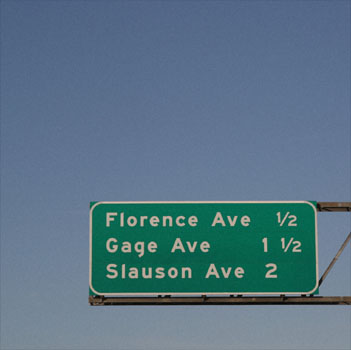
Artist: Blu
Album Title: Los Angeles
Label: Bigger Picture Recordings
Release Date: July 12th, 2024
Producer: Evidence
Blu loves Los Angeles. He loves his city the same way that M. Night Shyamalan loves Philadelphia. Throughout his career, there isn’t a verse he’s spat that doesn’t make reference to some obscure or well-known fact about his city. But don’t get it confused: As much of a proud Los Angelino as he is, he doesn’t look at the City of Angels with rose-colored glasses. For his Evidence-produced album “Los Angeles”, he speaks to his state’s sunniest sides and to its darker underbellies. Also, this isn’t a narrative album as he did on “Miles” or “A Long Red Hot Los Angeles Summer Night”. It’s a cinematic homage, just minus the overall storytelling. With the guest rappers such as Nana, Cashus King, and Self Jupiter, it goes without saying that “Los Angeles” is an unabashed west coast affair.
Evidence’s productions are sample-based and sufficiently varied for Blu to appropriately rap about his own myriad experiences. Evidence even cuts and pastes the sounds of the city, such as on “L.A. Traffic” featuring Freestyle Fellowship. Hard boom-bap comprises “The Land” as Blu’s lyrics are comprised of autobiographical raps juxtaposing South Central with the greater Los Angeles. The lead single, “Wild Wild West”, is something of an ode to South Central with high-pitched soul as a backdrop. Evidence even takes a break from behind the boards get behind the mic, providing his vocals on the mournful “Wish You Were Here”. Despite the oft-times dark and gritty overview of Los Angeles, Blu does manage to slip in a few bright spots.
Some would think the injection of humor constitutes filler, but a modicum of it is needed. Similar to “Friday” (1995) being a comedic corollary to its dramatic template “Boyz N The Hood” (1991), Blu respectively gives listeners “The Cold” (showing the best and worst of Los Angeles) and then “Hell” with its humorous comparison of L.A. to perdition. The posse cut “Lights At Night” features Domo Genesis and Navy Blue before “The L.A.” closes the album. With the album cover, it’s reminiscent of that of the Juggaknots’ debut. With no frills, Blu and Evidence made L.A. the lead character in the former’s continuing story.
5.)
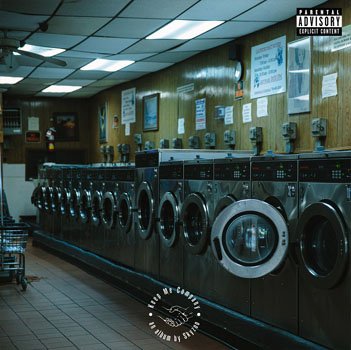
Artist: Skyzoo
Album Title: Keep Me Company
Label: Old Soul Music/First Generation Rich
Release Date: November 29th, 2024
Producers: JR Swiftz, Sir Williams, DJ Manipulator, MarcNfinit, et. al.
In my review of “Retropolitan”, I mentioned that the album was a “salute to the New York City of Yesteryear.” Well, Brooklyn emcee Skyzoo was practically born into hip-hop, hailing from Bed-Stuy and having an impressive album résumé which includes collaborative albums with the likes of 9th Wonder, Pete Rock, Apollo Brown, and !llmind. Though he’s proven that he can venture into expanded territory with concept albums, Skyzoo is at his best when he’s in his home element: Personal vivid raps laced with nostalgia over jazz-influenced production. On that note is his latest release, “Keep Me Company”, with rapped narratives filled with insight and honed craftsmanship over consistent production from various producers. Many of the songs are filled and bookended with vocal samples from activist speeches, beginning with the aptly-titled “Community Service”.
Several tracks are autobiographical, containing messages of perseverance and determination as opposed to mere battle rhymes. “Ayinde at the March” is a fast-paced jazzy production laced by MarcNfinit, as Skyzoo himself raps juxtaposed bars of his experience as an urban teen watching Ayinde Jean Baptiste’s televised speech at the 1995 Million Man March. The horn and keyboard samples shine on “Prayers For the Customers” as do Sky’s rhythmic flow. The single “Courtesy Call” features Public Enemy’s Chuck D. lending his recognizable booming voice to urgently accompany Sky’s braggadocious rhymes over The Dagger’s piano-sampling boom-bap. The haunting atmospheric vocals and drum patterns on “Esoteric” reflect Sky’s verses loosely recounting experiences growing up.
The one track that resonates the most is “Record Store Day” and its preceding interlude. Produced by ANKN & VDR, Sky raps a first-person story revolving around meeting a woman in a record store and the joy of simply sifting through crates of records. The album seems slightly more personal as it winds down. The father-to-child open-letter format on “Wins of the Father” is a positive spin parenthood reflections. The closing track, the lush eight-minute “Jazz In The Projects”, encapsulates Skyzoo’s whole career in its title alone, along with raps and some spoken words near the end. For some, Skyzoo’s albums seem repetitive in sound, but that isn’t true. With “Keep Me Company”, he’s saying otherwise with a display that’s one part impervious with the remainder consisting of Sky shedding greater light on his inner view.
4.)
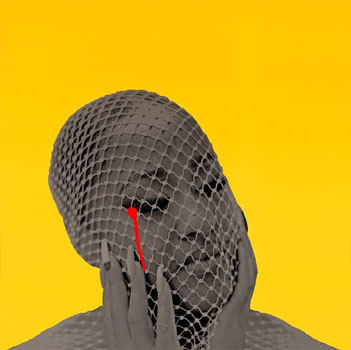
Artist: Rapsody
Album Title: Please Don’t Cry
Label: Jamla Records/ROC Nation
Release Date: May 17th, 2024
Producers: Blk Odyssy, Eric G., Major Seven, Hit-Boy, S1, et. al.
Marlanna “Rapsody” Evans has a talent on the mic that makes her part of the upper echelon of female emcees, which are a minority group in hip-hop. However, they have that status solely because of representation, not because of ability. Hell, some female emcees are exponentially better on the mic than some of their male counterparts. Jean Grae, Ché Noir, and Rapsody are usually the three who come to mind. Neither of them has to play off their sexuality to garner attention, they just straight rap and rap well. With Rapsody, she went Dashboard Confessionals/Alanis Morrisette for her fourth album, “Please Don’t Cry”. Intended as something a personal album, Rapsody’s latest offering delivers a mix of both rapped introspection and emotional purgation. For this 22-track endeavor, most of the songs are helmed by several producers to create the tear-evoking “This Is Us” audio experience.
The Soul Council are noticeably absent from this album with Eric G. being the sole exception. The lead single, “Asteroids”, is full of rhymed juxtapositions over Hit-Boy’s soulful piano keys. She experiments with her flow over the 808-bounce on “Black Popstar” and raps her inner confessions on “Stand Tall”. As stated before, Rapsody doesn’t go along with the whole “sex sells” angle. Though “Lonely Women” is sexual, it’s done with a positive spin. The one rap guest appearance that’s readily recognizable is on “Raw” with Lil’ Wayne. Though this next collaboration would’ve made more sense conceptually to be included on 2019’s “Eve”, Erykah Badu on “3:AM” provides a neo-soul atmosphere. Phylicia Rashad’s inclusion on multiple tracks is a testament to Rapsody’s respect for the actress dubbed “The Mother of the Black Community”.
The North Carolina emcee remains sharp, but “Please Don’t Cry” is more defined by its emotional weight and mature themes. It’s raw, and yet refined. Rapsody turned inward for this album, and even the track titles are inverses: From “Diary of a Mad Bitch” to “The Ballad For Homegirls”, Rapsody also does spoken word, gospel, socio-political (“He Shot Me”), and just straight emceeing (“Back In My Bag”). In many ways, the album is framed like a therapy session, which is appropriate: For Rapsody, it’s an exorcism of emotions and repressed feelings. For listeners, she hopes “For people that need healin’, I share my truth and my problems / Hope it might change your outcome even if it don’t solve ’em”. In either case, and despite the pleading album title, how do you NOT shed at least a cathartic tear?
3.)
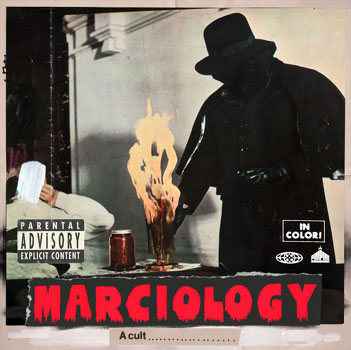
Artist: Roc Marciano
Album Title: Marciology
Label: Marci Enterprises/Pimpire Records
Release Date: March 29th, 2024
Producers: Roc Marciano, The Alchemist, & Animoss
It would be inaccurate to categorize Roc Marciano’s music as “throwback”. Taking pages from the playbooks of Kool G. Rap, Raekwon, and the Ghostface Killah, he made it cool for New York City hip-hop to be itself again. Though the concept of east coast mafioso rap is nothing new, Roc Marciano did his own modern revolutionizing of the genre and pioneered many active trends in hip-hop in the process: Sparse sampled productions often without drums, songs with no hooks, and complex bars interspersed with crime narratives and lifestyles of luxury. From 2010’s “Marcberg” to now, Roc Marciano has become an institution, as both a rapper and a producer. Aware of the extent of his influence and how his work has been studied, Roc released his ninth studio album “Marciology” this past March.
For the past few years, Roc’s become one of my favorite emcees. As an rapper, he has a razor-smooth flow with an ice-cold monotone. As a producer, he has a way of doing more with less: Rapping over drumless music is difficult, but he’s made having intricate rhyme schemes over such beats a trademark of his work. In one bar, his rhymes are as violent as Tony Soprano and then the next, he’s rapping about expensive jewelry and eating in upscale restaurants. I’ve mentioned this in another review, and the quality of “Marciology” warrants its repetition here: Roc Marciano’s work is what Starz’s “Power” would be with a better creative staff. Roc handles ten of the fourteen tracks, while Animoss and The Alchemist take two each. The result? A consistent production with vivid New York pimp rhymes and street talk.
Frequent collaborators such as Knowledge the Pirate and CRIMEAPPLE appear. The latter shares mic duties on “Killin’ Spree”, with an eerie haunted house-esque production as CRIMEAPPLE lays a verse paying homage to Roc as an influence. The self-produced “Bebe’s Kids” is one of the album’s standouts with triple pattern rhymes, a playful looped sample (as well as vocals from late comedian Robin Harris for good measure), and Roc cleverly taking shots at those who perish the thought of paying homage to the man who cultivated their styles: “Got seeds in the biz / Lucky for y’all, Iont beat my kids”. The smoky R&B haze of “Went Diamond” is also worth mentioning. With “Marciology”, Roc Marciano not only has another notch on his belt, but he’s also giving listeners a sonic crash course in all things Roc Marciano.
2.)

Artists: Common x Pete Rock
Album Title: The Auditorium, Vol. 1
Label: Loma Vista Recordings/Fat Beats
Release Date: July 12th, 2024
Producer: Pete Rock
One quotable from veteran Chicago emcee Common is this: “They said hip-hop is dead, I’m here to resurrect me”. Renowned for his lyrical prowess, the artist formerly known as Com Sense (who’s also the man who dropped the innovative extended metaphor “I Used to Love H.E.R.”) teamed up with luminary New York City producer Pete Rock for an album with singles dropped fittingly around Hip-Hop’s 50th Anniversary. Though Common is officially an elder statesman at this point, he remains a spring chicken when comes to rapping. This isn’t the “Resurrection” era Common, who had raw skill but had yet to temper his youthful aggression. With nostalgic sonic backdrops and a mix of both singers and rappers, “The Auditorium, Vol. 1” evokes the feeling of yesterday when going into the local music store every Tuesday was exciting because of guaranteed quality.
Some may tire of the throwback nature of their music, but I say such regression is needed. It reminds fans of where hip-hop’s greatness has been and where it can travel. Pete Rock’s ability to manipulate sampled sounds into the boom-bap he’s known for gives the overall sonic canvas a Native Tongues/Rawkus era vibe. As for Common, his flow and pen game remain more than sharp enough to meld with the Chocolate Boy Wonder’s beats. Take a listen to “Chi-Town Do It” where Com uses a few bars to manipulate R&B outfit Jodeci over the soulful boom-bap. Then there’s the lead single, “Wise Up”, which gave the album its initial buzz. The track and its music video have all the vibes of that “street-corner-on-summer-day” rap.
Additionally, Com’s talent for metaphor shines throughout the album. On the Bilal-assisted “So Many People”, he personifies faith, hope, and destiny as women. On that same track, Pete laces the beat with a Soulquarian influence and striking bass. Even though the lyrical portion of this album is Common’s province, it’s not exclusive. “When The Sun Shines Again”, with its melodic piano samples, features a verse from Posdnuos from De La Soul, who proclaims the main pitfall in rap of being hailed as a “G.O.A.T.” in that goats are practically tailor-made for sacrifice. Even Pete himself grabs the mic for a verse on the second single, “All Kind of Ideas”. This joint album was filled with fifteen tracks, no filler, and a title that implies an inevitable sequel in the future. Let’s hope so.
1.)

Artist: Your Old Droog
Album Title: Movie
Label: Rem-U-Lak Records
Release Date: June 21st, 2024
Producers: Harry Fraud, Madlib, Just Blaze, K-Nite 13, CartuneBeatz, et. al.
20 years ago, in late August of 2004, my mind was set on “The College Dropout” by Kanye West as being hip-hop’s AOTY. At the same time, I read a write-up (via RapReviews ironically) of Masta Ace’s “A Long Hot Summer” album. Later that day, I saw the CD for it at my local mall’s FYE and listened to the 30-second previews. Those samples were enough to not only compel me to buy the album right then & there, but preemptively bump Kanye’s debut from my #1 spot. The point of that anecdote? “Movie” by Brooklyn emcee Your Old Droog did the same thing: Surprising me to the point where it nabbed the coveted top spot from another album (see my #2 pick).
Aside from the Nas comparisons, one of YOD’s standouts is his incorporation of pop culture references in his rhymes. With EP releases “The Yodfather” and “The Shining”, it was inevitable the he’d eventually throw the camera on himself and direct his own autobiographical “movie”. Filled with detailed narratives from different points in his life, YOD enlists Just Blaze to conduct the score for the first chapter “Success and Power”. The producers who made substantial contributions to the album’s soundscapes were Madlib, K-Nite 13, and Harry Fraud (the latter having produced four tracks). The guest stars in his autobiography are very small, but make an impact, particularly Method Man on the Madlib-produced “DBZ”.
The songs range from braggadocious to vivid accounts of YOD’s own experiences. With a gruff voice delivering seemingly effortless multis, he doesn’t hold back when recounting his own adolescent fumblings (“How Do You Do It?”) to family business (“Grandmother’s Lessons”). The sample-based variety of beats crafted added to the album’s aesthetic, giving “Movie” an overall backdrop reminiscent of the soulful sounds of the east coast rap scene circa early to mid-2000s. With battle raps, storytelling rhymes, lyrics showing a relatively softer side, and a plethora of capable beatsmiths, the near one-man show that is “Movie” deserves its flowers.

